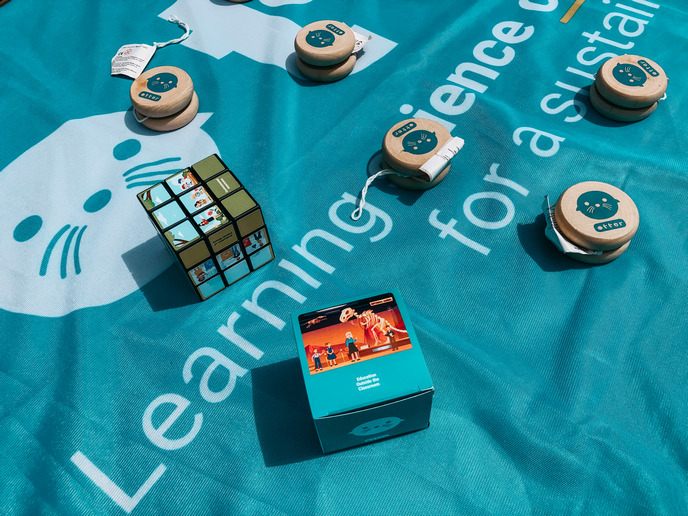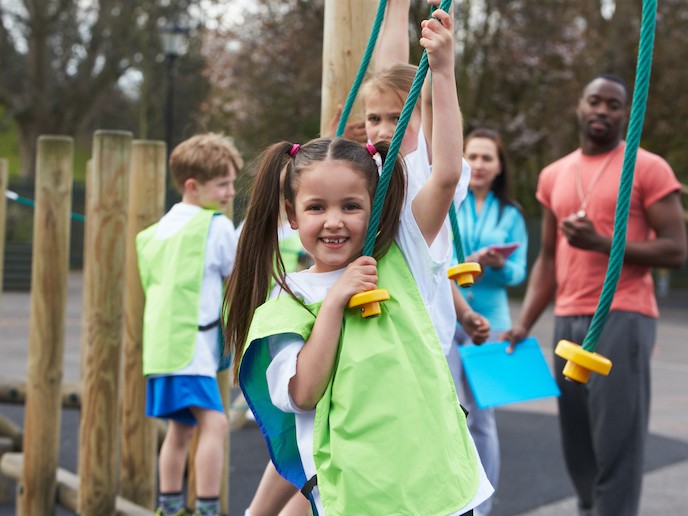Creating future problem solvers through outdoor education
Inspiring young people to study science remains a challenge. In today's schools, STEAM (science, technology, engineering, the arts, and math) subjects are still perceived as difficult. The traditional and theoretical models of teaching are not always designed to be engaging. Aiming to change this perception, the EU-funded OTTER project(opens in new window) brought together educators, scientists and creatives to co-design new education outside the classroom (EOC) experiences focusing on environmental sustainability(opens in new window) and reduction of plastic waste(opens in new window).
Shaping the Education Outside the Classroom methodology
The OTTER Lab methodology was initially ideated as a five-step approach that adopted student-centred pedagogies and was designed by the teachers, with support from the OTTER team representatives, in four pilot countries: Ireland(opens in new window), Spain(opens in new window), Hungary(opens in new window) and Finland(opens in new window). Teachers were prompted with training materials to design engaging learning experiences that had strong links between the OTTER lab design(opens in new window) principles – Sustainable Development Goals, 21st century skills as well as inclusion and diversity – and their countries’ curricula. The experiences centred around visits to sites outside the classroom to collect evidence related to their OTTER lab objectives. The teachers included elements of pre- and post-learning to support EOC visits. The novel aspect of the OTTER approach was the use of the evidence collected off-site to generate a youth ‘Make an Impact’ initiatives. “OTTER used evidence-based methodology, blending literature insights with practical experiences across very diverse socioeconomic educational contexts,” explains project fellow Nathália Helena Azevedo. “Based on the inspiring projects developed by students during OTTER labs, using similar methodologies as a scaffold can be a pathway to encourage imagination, collaborative projects within school communities, and reflection on interconnectedness among humans, other species, and environments.”
Assessment as integral part of research and educational excellence
A key objective of OTTER methodology was to establish a continuous monitoring and evaluation process instead of a single intervention. Assessment tools served a dual purpose – both informing research outcomes and contributing to students' learning. In addition to enhancing the research process, this integration also provided valuable insights for educators. “Our results also show that this approach requires specific and targeted teacher professional learning. Planning and preparation would need to be supported with time – specific blocks in the timetable or substitution cover – and resources such as sustainable equipment that can be used across classes and subjects – for schools so that teachers and stakeholders can collaborate and design rich learning experiences,” points out project fellow Deirdre O’Neill. “We would like to see incentives to attract industries, communities and school leaders to buy into this approach and provide their full support to teachers.”
Shifting the education ecosystem
Drawing on the findings of the project, a draft protocol for assuring the quality of EOC activities will be developed to create an accreditation framework for such activities. “We intend that the guidelines help accreditation stakeholders to set up an EOC accreditation system. This will provide information point by point on who and what is to be accredited, why an organisation should apply for accreditation, the parameters to be assessed, post-accreditation development and maintaining the accredited status,” concludes project coordinator Jelena Kajganovic. “We aim to build an education ecosystem in Europe across a diverse set of places, promoting quality education for all.”







